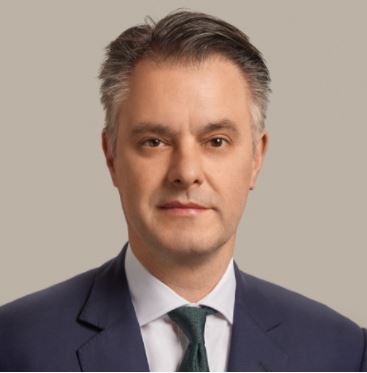Chair of Lloyd's Tercentenary Research Foundation shares his experience of being a trustee

Lloyd’s Tercentenary Research Foundation (LTRF) was established to mark the tercentenary of Lloyd's in 1988, with the objective of funding research in the fields of medicine, science, safety, the environment, engineering and business. It funds new research on risk related issues and also offers scholarships through Fulbright to study in the US, working to four core principles:
•To encourage research that has a clear, positive, and practical societal impact
•To promote an open and collaborative approach to research, enabling inclusive results
•To support a diverse community of excellent researchers
•To foster a balanced dialogue, and nurture lasting relationships, between the academic and Lloyd’s market communities
Governed by trustees from across the Lloyd’s market and the world of academia, we ask Andrew Carrier of Everest, about what the trustee role of this well-established charity involves…
1. Tell us a bit about you and how you became involved in Lloyd’s Tercentenary Research Foundation?
To be honest, I didn’t know a great deal about the LTRF until a former trustee approached me and asked if I would be interested in getting involved in the governance of a charity that funds academic research for societal benefit. So, it was pretty accidental, but a very happy accident.
2. Why did you decide to become a trustee?
It sounded interesting and certainly very different from the commercial world in which I spend most of my time. I have always been passionate about learning generally. Even in a professional field I have probably had to relearn my day job every five years or so, as the environment around us changes so rapidly. I am an avid reader and I subscribe to the view that one must have input before output. For me, learning and education is a fundamental part of the fabric of life. It seemed like a natural fit.
3. What do you find most enjoyable about the trusteeship?
We consider all sorts of academic research topics related to the field of risk. The variety of topics and geographies we see is extensive. Our aim is provide societal benefit through the grants we make, so we have to always remain pragmatic, but at the same time have the prescience to see a favourable outcome from the research we consider, without the constraints of a commercially minded approach. I enjoy that.
4. What do you find most challenging about the role?
Our board is comprised roughly 50/50 of academics and market practitioners, and so there tends to be an underlying contrast in the way a university professor might think about things versus a regular commercial guy like myself. While this often results in some healthy debate, there is a rewarding sense of ‘equilibrium’ when we reach collective agreement. It was the challenge (and ultimately the benefit) of this dialectical relationship of trustees that excited me about recently taking over the role of Chair.
5. What do you think you have gained from being a trustee?
We all have our daily exigencies and demands. We inevitably tend to focus on what is urgent rather than what is important in our decision-making. Being part of LTRF has given me the opportunity to think only long-term and to think only about what is favourable for society.
6. What do you hope for the future of Lloyd’s Tercentenary Research Foundation?
Obviously, I would like to raise the profile of LTRF. The more we can attract high quality research projects, the better we can do our jobs as trustees. But our financial and operational resources do have a limit, so it’s a balancing act.
7. What would you say to someone thinking of becoming a trustee?
If you are a business person with an interest in the field of learning, or if you are an academic with an interest in engaging with those working in commerce, then LTRF is a forum that will not consume huge deal of your time, but will be hugely rewarding. I know it has been for me.